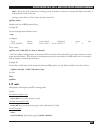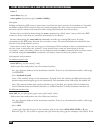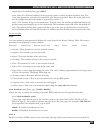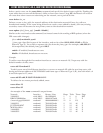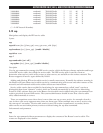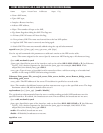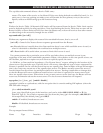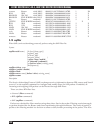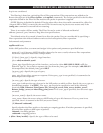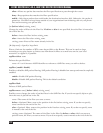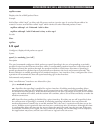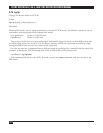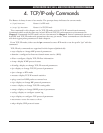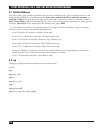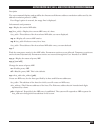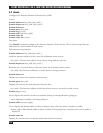
ASYNC ROUTER AR-P, AR-5, AND SYNC ROUTER REFERENCE MANUAL
209
hop is not considered.
The filtering is based on a prioritized list of filter expressions. Filter expressions are added to the
Router through use of the filter, ripfilter, and sapfilter commands. The action specified in the first filter
expression found in the Filter list that matches the packet in question is applied.
All IPX filtering is disabled by default. Filtering takes effect when the enable command for a filter list
(General, RIP or SAP) is entered by the user. Filter list entries stay in place across restarts only if the
config save command is entered before restarting.
There is no notion of filter modes. The Filter list can be a mix of allowed and denied
address/protocol/port/interface/flag/direction specifications.
The default action if no match is found is to allow the packet. You can override this by specifying a
filter expression with wildcard address entries as the lowest-priority filter expression.
Subcommands and parameters
sapfilter add name
Adds a SAP packet filter you name and assigns it the options and parameters specified below:
name—A 1- to 6-character ASCII identifier chosen by the user to easily reference filter expressions.
Each filter expression must have a unique name.
{[-i iface [/frame_type]]—Specify a legal interface.
iface—eth0, modem0-4, sync0
/frame_type—Specified as part of the interface, and can be either 802.3, 802.2, SNAP, or II (for
Ethernet Type 2). Use a slash to separate the iface from the frame_type—for example, eth0/802.2. If
left unspecified, the default frame_type is 802.3.
[-q query_type]—Specify the type of query.
query_type—Enter either request or response. If the query_type is not specified, it is assumed to be
both, request and response.
[-s server_type]—Specify the type of server.
server_type—indicates the type of server in the SAP packet on which to filter. Specify the server_type as a
hexadecimal number (1 to FFFF). The server_type can also be specified as one of the following
keywords: Wild, Unknown, Print Queue, File_server, Job_server, Print_server, Archive_server,
Remote_bridge_server, or Advertising_print_server. If no server_type is specified, then all server types
are used.
[-n server_name]}—Specify the server name.
server_name—Name the server using an ASCII string of up to 48 characters. If server_name is not
specified, then it is assumed to be null (any server name).
[-f {inbound | outbound}]
Specify whether the filter applies to incoming or outgoing packets. If neither parameter is specified,
then the filter applies to both types of packets.
inbound—incoming packets.
outbound—outgoing packets.
-t {allow | deny | nodial}—Specify the type of filter to be used.



